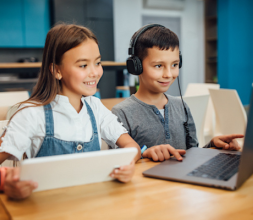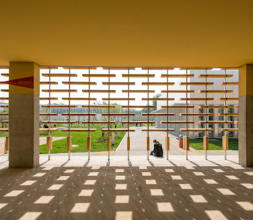
Moving your teaching online: riding the rush to remote!
No doubt about it! COVID-19 has revolutionised how educators all over the world teach their lessons. The familiarity of being in a classroom was replaced with Emergency Remote Teaching. But what can schools and teachers do to successfully incorporate online learning in the future, and how can they do it? Find out more in this tutorial!








